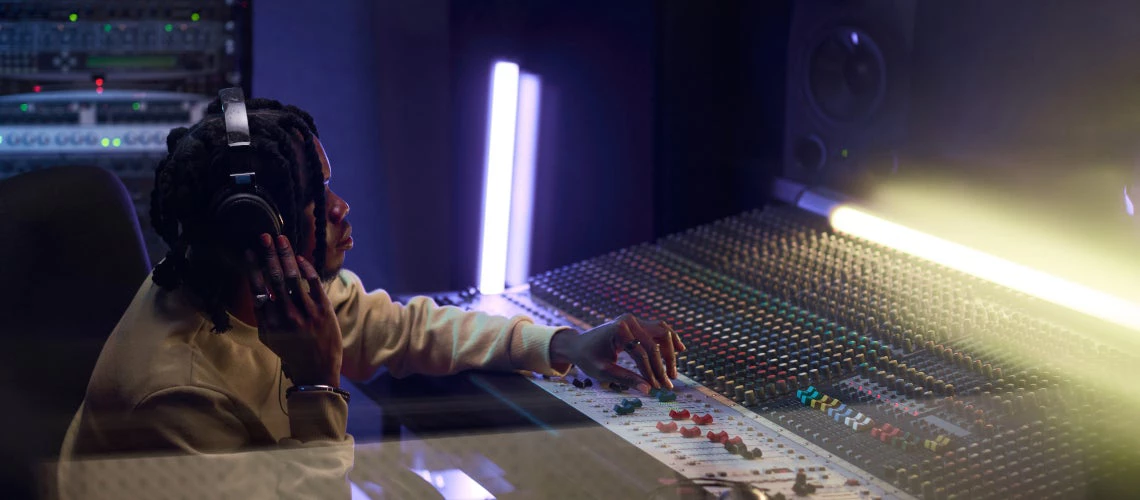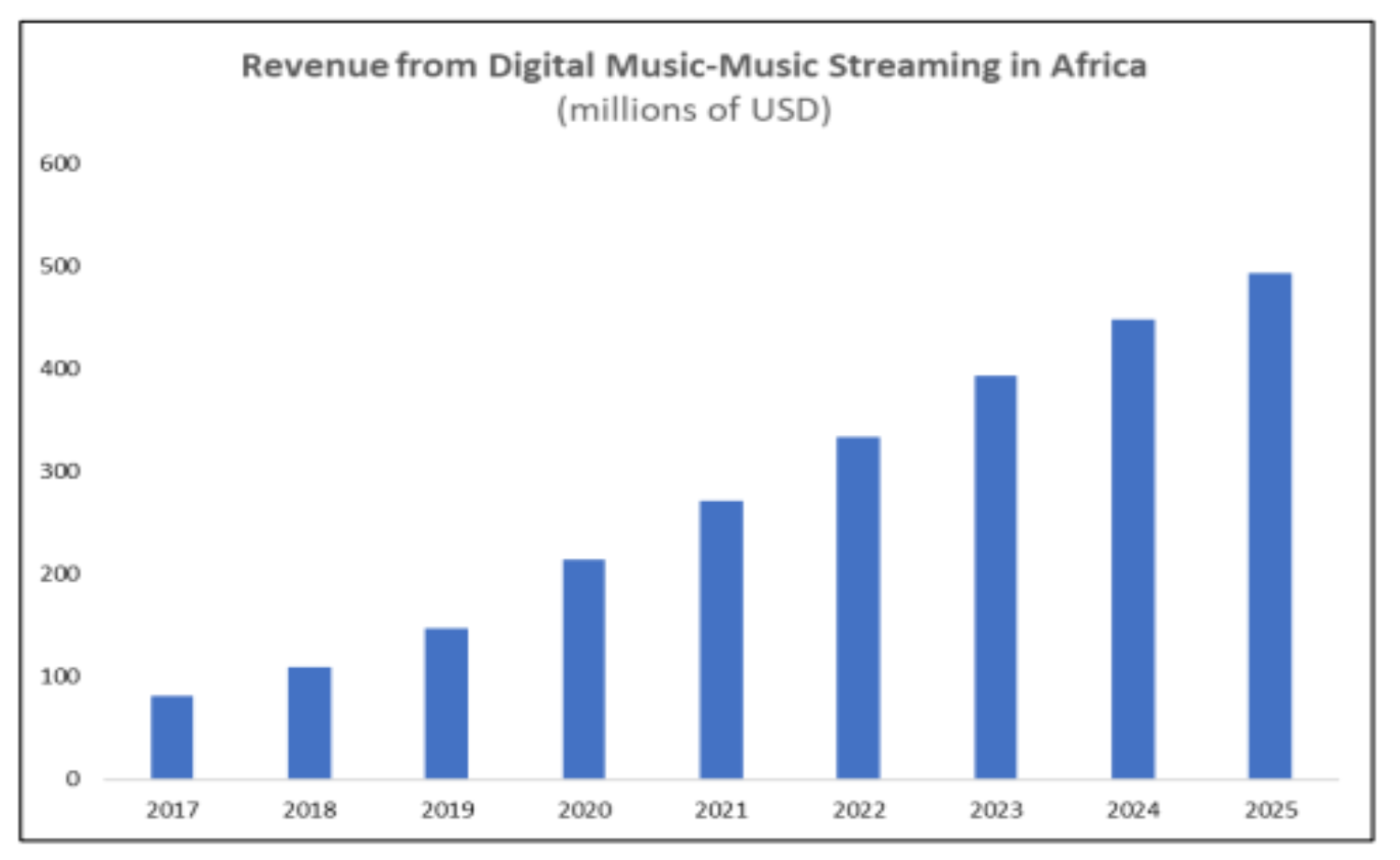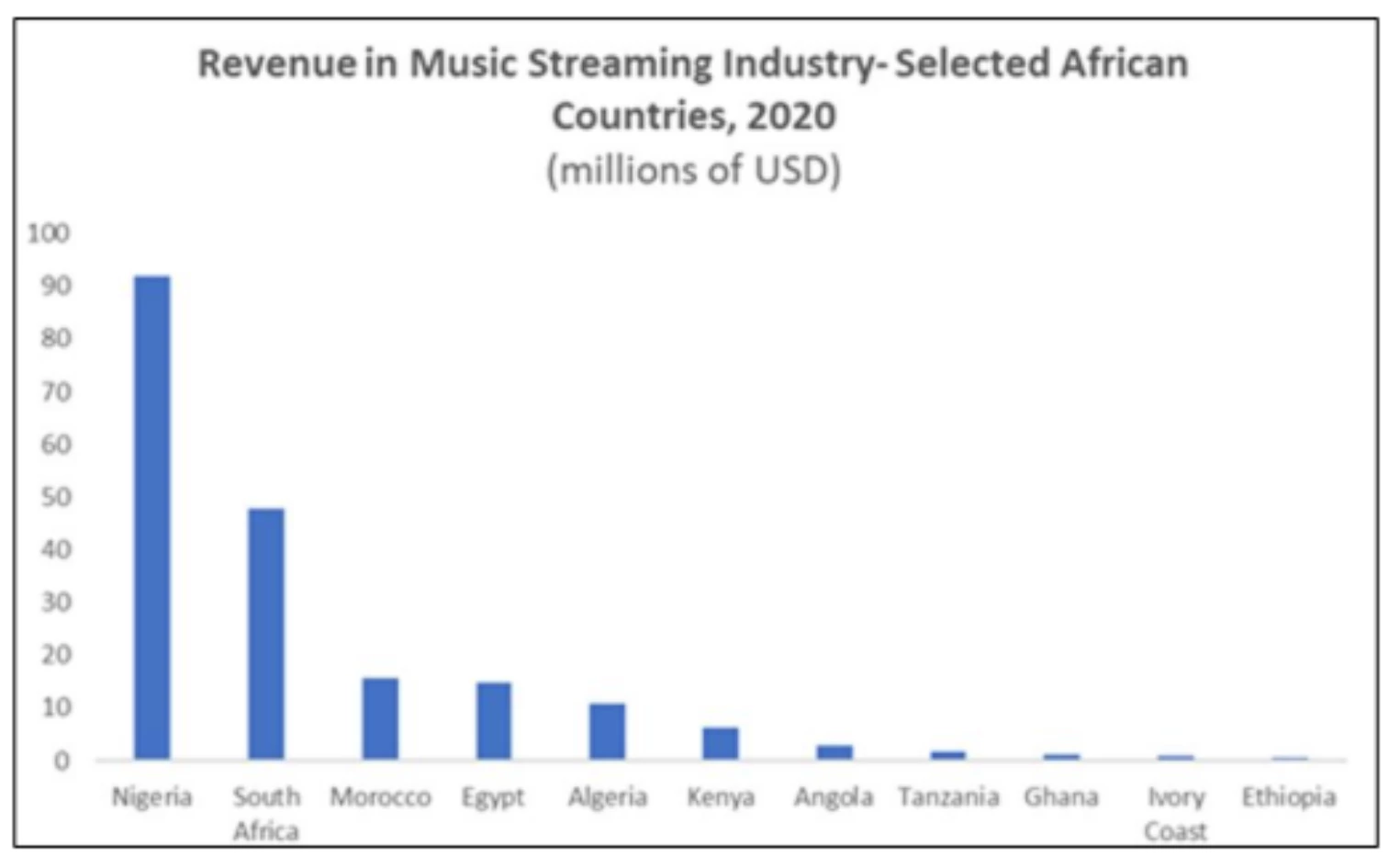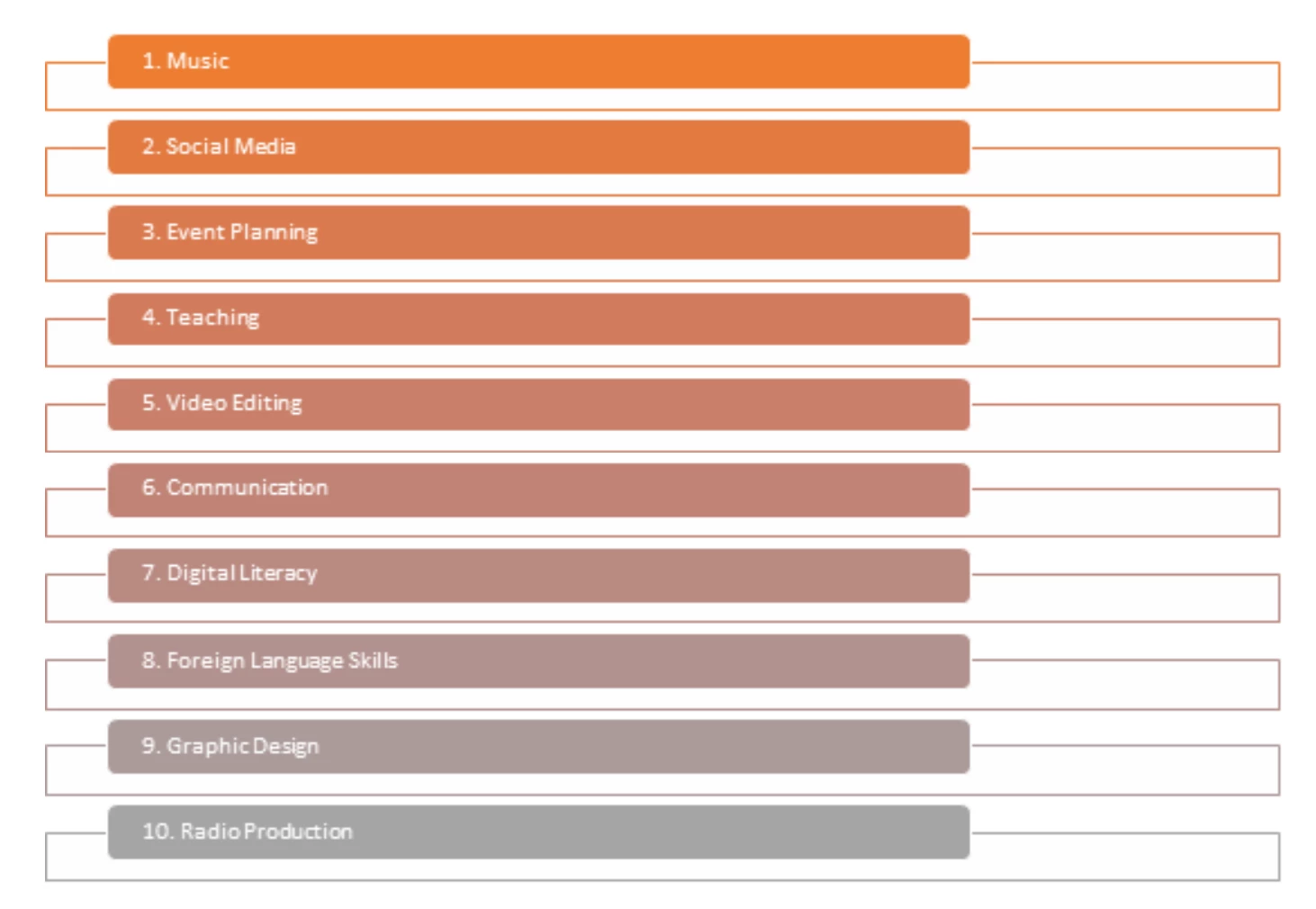 Anna Stills/Shutterstock
Anna Stills/Shutterstock
Mdundo, a music streaming company based in Kenya, is often called the “Spotify of Africa.” It has over 5 million active users through its website and Android app, more than 90,000 registered artists, and over 20 million downloads and streams per month. While conventional streaming platforms give most of their revenues to record labels and distributors, Mdundo disperses half of its income directly to artists.
For African youth, the music industry — from making music to marketing it— could be a promising source of employment in the world’s rapidly growing creative economy (or “orange economy”). As highlighted in our report on the orange economy, easy-to-access technology has helped the creative sectors boom. Streaming music in Africa alone is set to generate close to US$500M by 2025, almost five times the revenue in 2017.
Figure 1: Revenues in Music Streaming segment in Africa is predicted to be five times more in 2025 than it was in 2017.
Figure 2: Cross country comparison of revenues from music streaming by country.
However, youth in the music industry face numerous constraints, from inability to get loans, to lack of quality educational programs.
Our brief, “Unlocking Opportunities for Youth in the Orange Economy: Music in Africa,” takes a deep dive into Africa’s music landscape and how to support the industry. Here are six strategies for promoting youth-led music enterprises.
1. Create equitable access to finance
Targeted programs such as one developed by Afreximbank, a pan-African multilateral trade finance institution, can help. The bank launched a US$500M Creative Industry Support Fund to make it easier for artists and enterprises to access financing.
Another innovative company is PopRev, a digital investment platform for the public to invest in musicians. With real-time monitoring and insights, fans can track the performance of the music in which they have invested. The profits of an artist are linked to digital streaming, and this has created a viable business model which allows musicians artistic freedom without funding pressures.
2. Invest in music-friendly policies
Providing public spaces to perform, investing in training and education, and providing access to instruments and equipment for musicians can go a long way to help the music industry . It’s also crucial to create regulations that enforce intellectual property rights, so artists can economically benefit from their work. For instance, Kenya’s The National Music Policy helps combat piracy and copyright infringement through the Kenya Copyright Board by establishing a digital copyright licensing system. It also ensures 60 percent of airplay is reserved for local musicians on local-language radio stations to promote traditional music.
3. Support networking through music industry associations and platforms
Industry organizations can help bring stakeholders together to leverage information, resources, and initiatives. For example, online platform Music in Africa aims to promote the industry by providing access to a vast network of resources.
Another industry group paving the way is the African Music Export Office (BEMA). The regional network of music professionals promotes the production and distribution of African music across the world. Through events like the International Forum of African Music, BEMA empowers artists in Africa while also strengthening the African music market.
4. Increase the participation of women and artists from marginalized communities
Women and artists from marginalized communities need access to finance, professional networks, training programs, and technical skills.
Gender@Work, launched in 2019, provides women with classroom and practical hands-on training in stage management, electronic music production and recording, and music business management. The Southern African Disabled Musicians Association acts as a record label and concert organizer for artists who are blind or have physical disabilities . It participates in policy advocacy for disabled musicians and provides training in copyright, royalties, publishing, and recording contracts.
5. Prioritize internet infrastructure and communication technology
Though there’s been an increase in fintech and supporting technology, a lack of investment in related information and communications technology (ICT) and internet infrastructure pose impediments to equitable access to streaming platforms, both on the supply and demand side. For instance, while Nigeria leads in terms of streaming revenues, it falls behind in user penetration rate (defined as the percentage of the population of a region/country that uses music streaming services). Further investment in infrastructure could help countries like Nigeria match user penetration rate to revenue generation.
6. Promote human capital development through training
A group educating youth is Music Business Academy for Africa. It provides training courses for youth to acquire skills relevant to the music industry, such as talent management, media, content development, event organization, and production. Similar programs are needed —however, it’s important that these programs are in line with industry needs and are mapped to in-demand skills (Figure 4).
Figure 3: Top 10 Skills Needed in the Music Industry (2019, Worldwide)
Source: LinkedIn Data for Development Industry Skills Needs Database as part of World Bank Group’s Data for Development Project
Policymakers should take the lead of the organizations and programs mentioned above and embrace the transformative potential of the music industry . Promoting the industry is not only good for artists but could bolster other sectors. The growth of tourism globally, for example, has pushed many cities to promote their music industries to draw visitors, in turn creating jobs and preserving culture. That should be music to everyone’s ears.






Join the Conversation